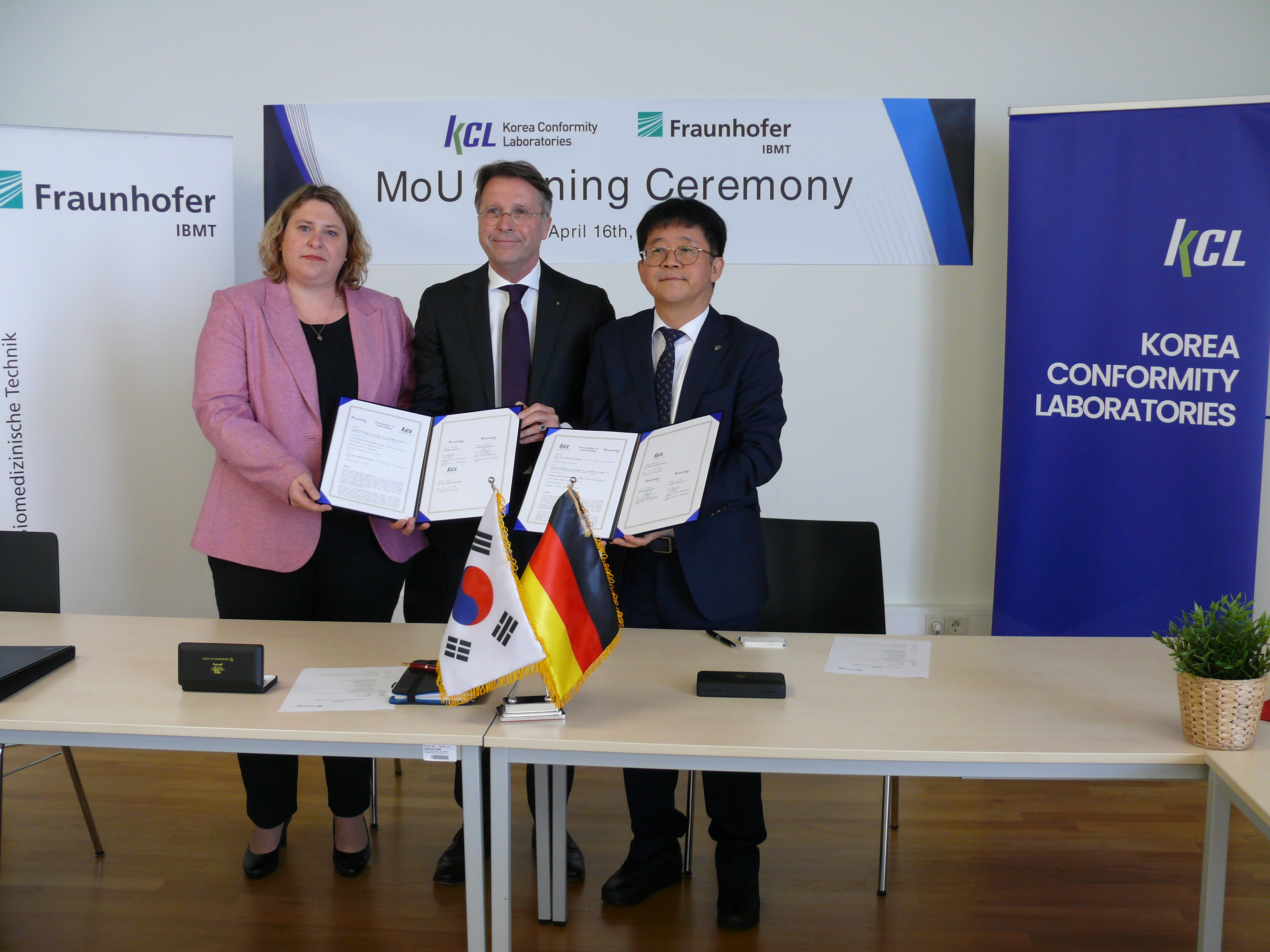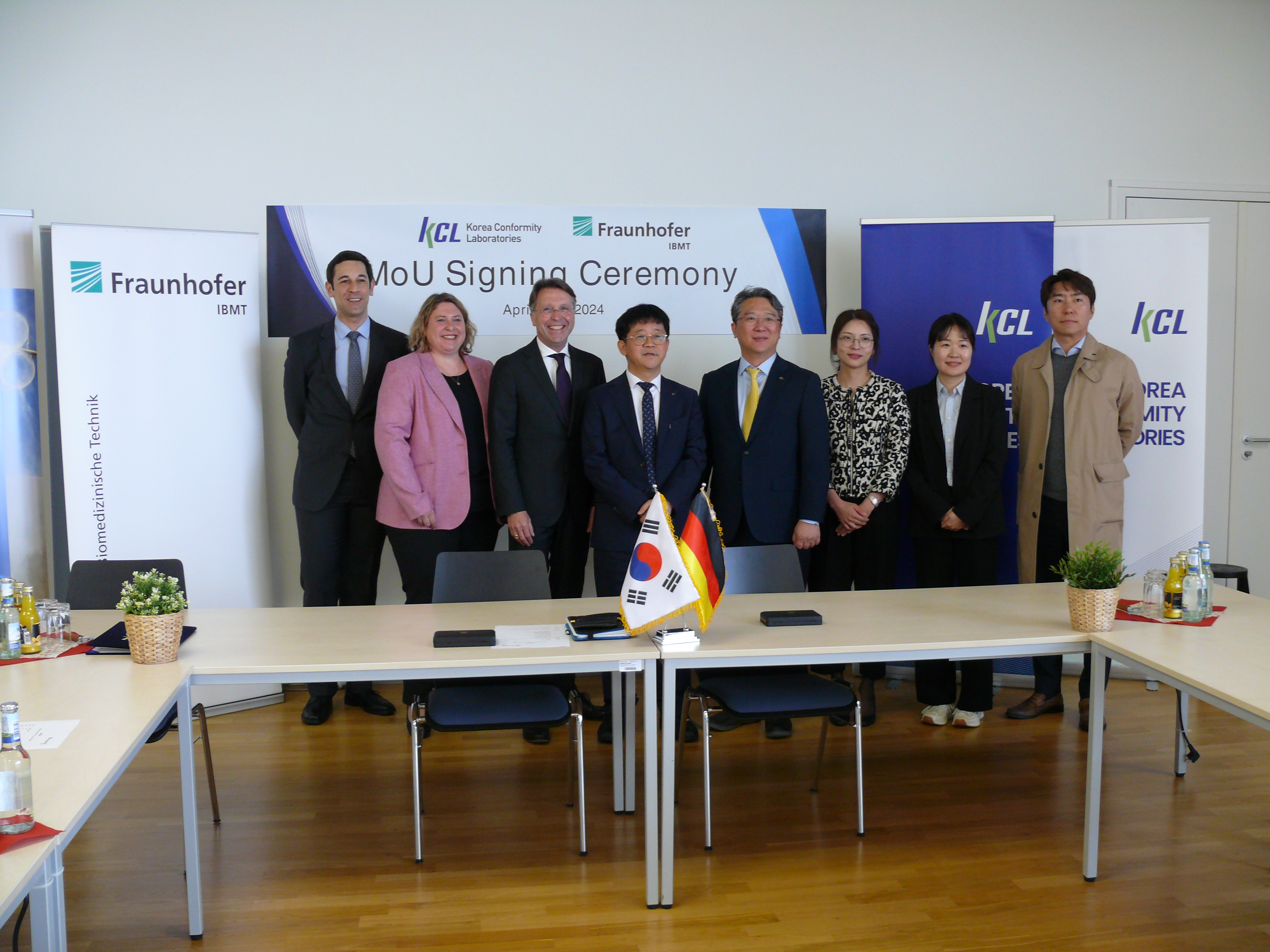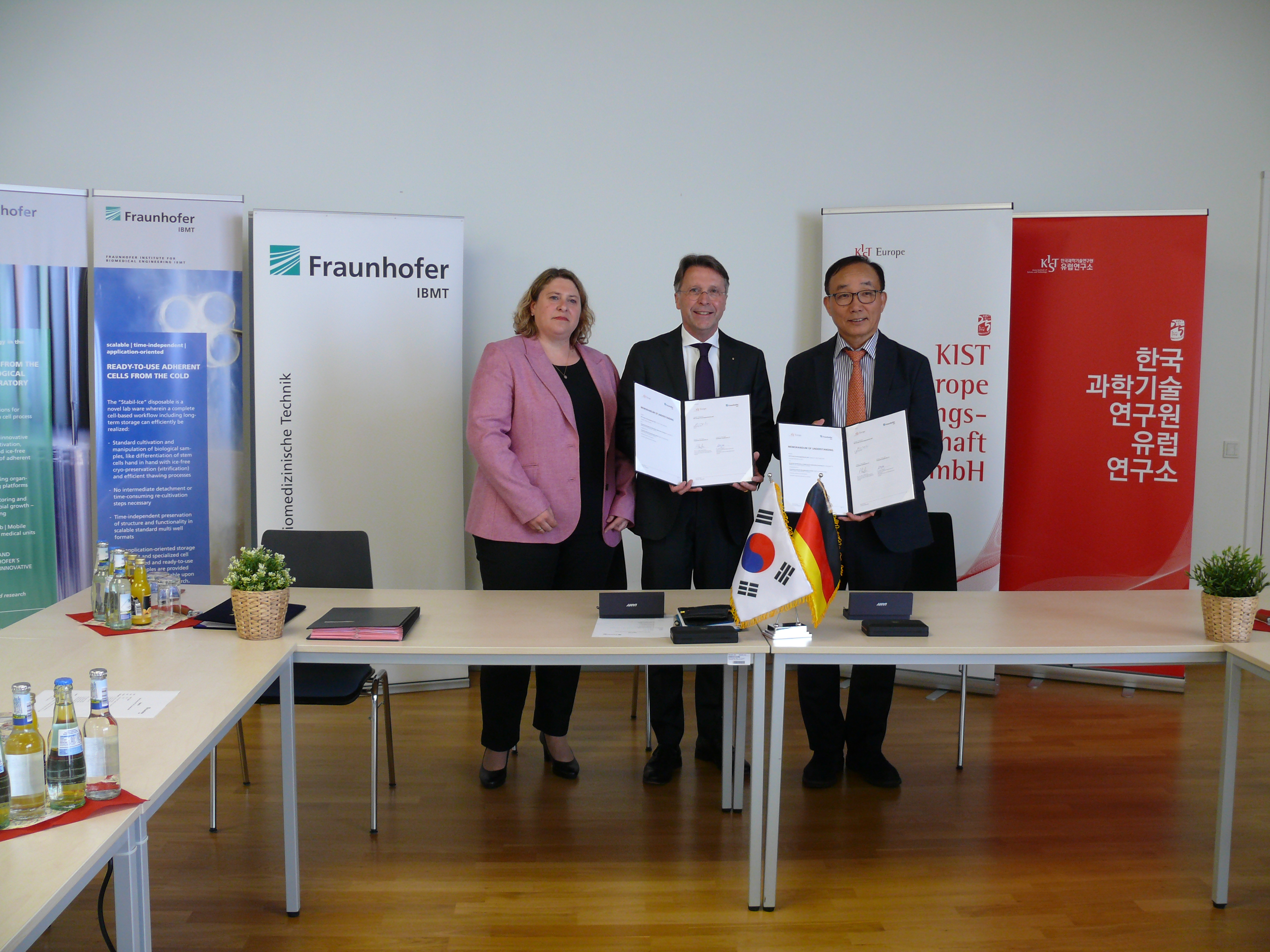Fraunhofer IBMT signs MoUs with KCL and KIST Europe
Joint research on nanosafety assessment technologies for global regulatory measures, development of new alternative in vitro testing methods, biobanking and cryopreservation
The Fraunhofer Institute for Biomedical Engineering IBMT signed letters of intent for future cooperation with Korea Conformity Laboratories KCL and KIST Europe on April 16, 2024 in Sulzbach, Saarland.



Animal testing is often used to ensure the safety and efficacy of products. However, recent studies have shown that the accuracy of animal testing is only 43.5 to 66.7% and more than 90% of drugs fail in clinical trials, which is in contrast to the results of animal testing (Matthew Clark & Thomas Steger-Hartmann, 2018). In addition, the US Environmental Protection Agency (EPA) has announced plans to invest in innovative safety assessment technologies (New Approach Methodologies (NAMs)) to reduce animal testing by 2025 and eliminate it altogether by 2035 (EPA, 2020).
In line with this trend, the Fraunhofer IBMT and KCL intend to enter into a partnership to jointly research alternative animal testing methods. In addition, the two organizations would like to collaborate in the following areas: Nanosafety assessment technologies for global regulatory action, EU REACH regulatory action, joint research and development and commercialization of biotechnology, and creating a regulatory framework for biotechnology and medical devices.
At the same time, the Fraunhofer IBMT signed a Memorandum of Understanding (MoU) with the Korea Institute of Science and Technology KIST Europe. The MoU covers topics such as in vitro models for regulatory affairs and toxicity assessment, MPS, NAMs, biobanks and cryopreservation, smart wearables and digital biomarkers for mobile modeling of brain diseases.
The Fraunhofer Institute for Biomedical Engineering IBMT is a life science and medical technology research and development institute that is one of the 76 institutes and research facilities of the Fraunhofer-Gesellschaft, Germany's largest organization for applied research and development. It was founded in 1987 and has achieved excellent research results in the fields of biobanking and animal surrogate testing, among others.
"Due to scientific and ethical issues, the transition to animal-free testing methods can be seen as an immediate challenge," said Yung-tae Jo, President of KCL, adding: "KCL will do its best to support companies by actively introducing new technologies."